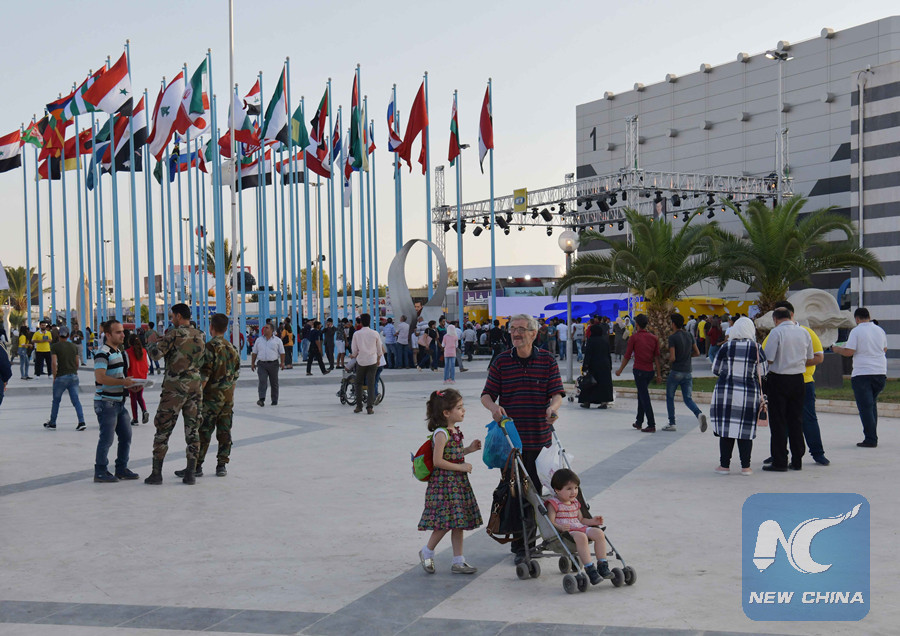
Syrians visit the Damascus International Fair outside Damascus, Syria, on Sept. 9, 2018. (Xinhua/Ammar Safarjalani)
DAMASCUS, Sept. 11 (Xinhua) -- Wafiqa Hosni, Syria's state minister for investment affairs, said Tuesday that China is one of the countries that are welcome to do investments and take part in the reconstruction process in Syria.
Speaking to Xinhua in an interview, Hosni said that China has provided lots of aid and assistance to Syria during the war of more than seven years.
She said that the "Chinese-Syrian relations are historic and excellent," stressing that "China has remained to provide assistance to Syria during the crisis and the doors of investment are opened for China along with the countries that have stood by the side of Syria."
Her remarks reflect the stance of the Syrian government, which has recently been promoting the reconstruction process and investments in Syria.
The Syrian government on Thursday opened the 60th round of the Damascus International Fair, the largest trade fair in the country.
Inviting foreign businesses, the government officials said the next stage in Syria is the rebuilding process, as the Syrian army has restored most rebel-held areas.
The government, however, stressed that the priority is for the "friendly countries" that stood by the side of the Syrian people and government such as Russia, Iran, and China.
Hosni also noted that the Western countries that "contributed to the destruction of Syria will not have a role in the reconstruction process."
"The Chinese companies are welcome in Syria and the participation of the Chinese companies in the Damascus fair is a strong sign that China is interested in taking part in the reconstruction process," Hosni said.
While the government is promoting the reconstruction and investment, the main challenge remains, which is the Western sanctions on Syria.
Hosni said the Western economic sanctions constitute a major challenge, stressing that the Syrian government is working hard to find suitable solutions to surmount such an obstacle with the help of "friendly countries."
The second hurdle, Hosni continued, is the lack of funding for investment projects for the local investors due to the limited resources for the Syrian state at this time.
She said the Syrian government is unable to offer big loans for the investors.
She said foreign and Arab investors are demanding investment guarantees for their projects such as a stabilization in the measures and laws of investments that could protect the projects later.
Hosni noted that the victories of the Syrian army have provided an important attraction factor to the investors, which is the safety factor.
The investment map has taken into consideration the Syrian areas that possess a "fertile investment environment," she added.
Last month, the United Nations announced that the seven-year war in Syria implied a destruction of nearly 400 billion U.S. dollars, which means that companies from around the world will show up to do business in Syria.
According to estimates published by the World Bank in late 2017, the long-standing war in Syria has ravaged its infrastructure and caused losses to its economy of 226 billion dollars.

